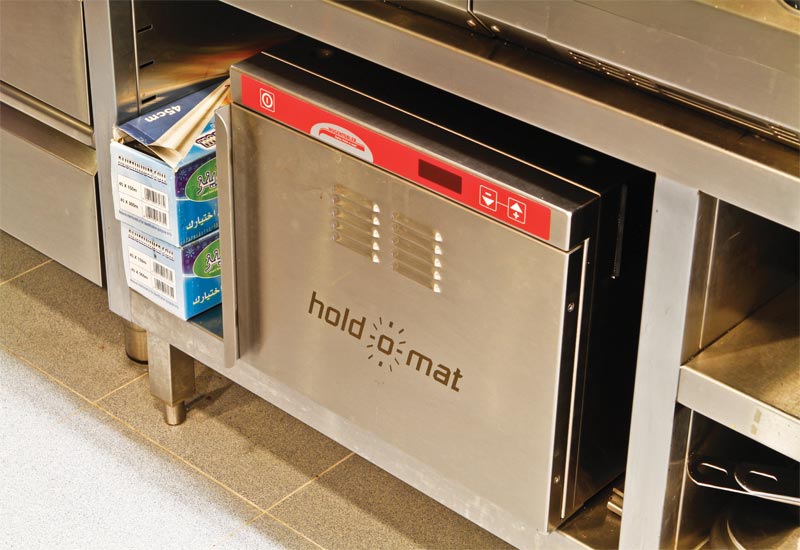 After cooking, meat rests in the Hold-O-Mat, which preserves quality with consistent temperature and humidity.
After cooking, meat rests in the Hold-O-Mat, which preserves quality with consistent temperature and humidity.
“That is what we do,” he continues, “we come in and lead the way. We are bringing education. It wouldn’t make sense for us to go below where we are. It’s a German thing.”
Hofmann is also trying to steer the supply chain and is putting pressure on producers to apply for halal certificates to ensure the finest European meat can be imported into the country.
“Importing meat is very complicated. We have to import everything halal. This means that we’ve had to change suppliers. We have gone to our old suppliers and told them to apply for halal licences. France won’t do it – they say that the market is too small, but we’re hoping others will.”

| Advertisement |
Aside from that, Hofmann is also proud of the specialist equipment that goes into making the Amador dishes so unique.
“The liquid nitrogen was hard to find in this country,” he explains. “We eventually found one in the airport for around €4,000-€5,000, and we refill it every single week.
We also use a dehydrator to create flavoured powders and olives with crunch.
And the only ready-made products we use are Texturas, from Ferran Adria, former head chef of El Bulli. The Vorwerk blender, which heats at the same time as it blends, creates the smoothest creams you can get,” he concludes.








 Search our database of more than 2,700 industry companies
Search our database of more than 2,700 industry companies









